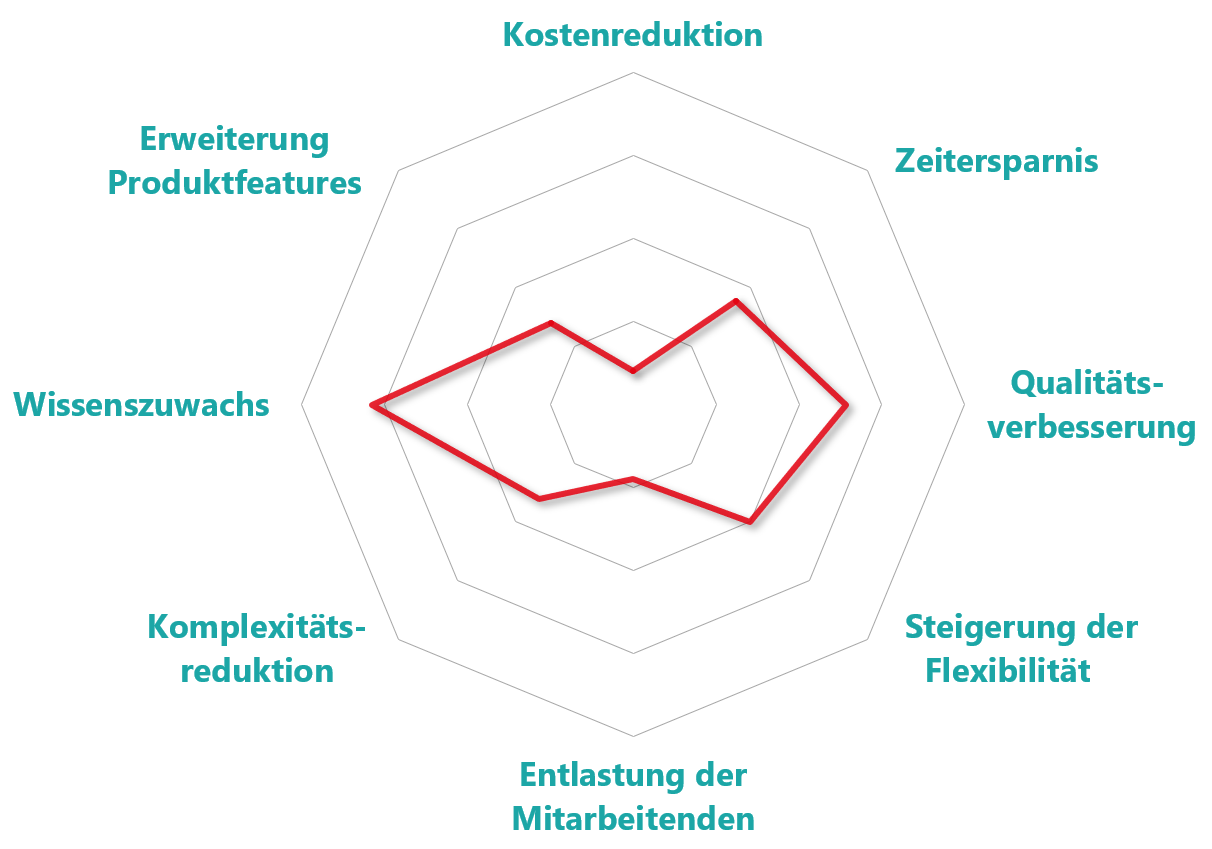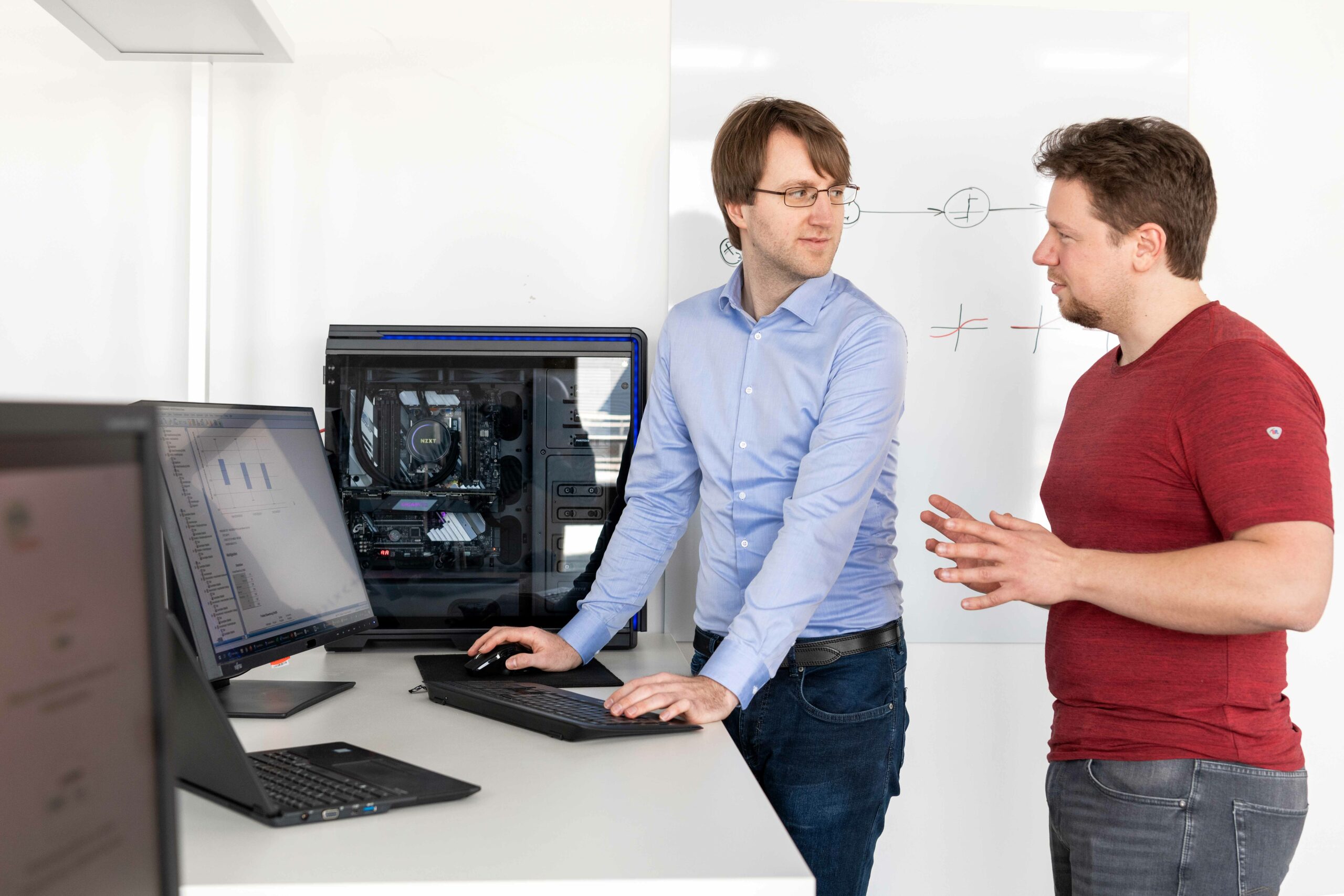Help for students - learning through play thanks to AI support
Motivation
A basic understanding of AI is a relevant key qualification in various professional fields, especially with a view to the future. AI applications such as ChatGPT are used by thousands of people every day for various, often work-related tasks, although the basic technical functionality is unclear to a relevant proportion of users. An interactive web learning application is intended to convert this lack of background knowledge into a basic technical understanding. The offer is aimed in particular at a target group with little prior technical knowledge in the field of natural language AI. Through an in-depth examination of the powerful functional scope of large language models, users should be enabled to make optimum use of this technology. At the same time, it also raises awareness of possible weak points and performance limits.
Objective
The free online course "Artificial intelligence in the world of work" is being developed as a low-threshold introduction. In addition, a special focus is placed on large language models and applications such as ChatGPT.
The interactive web learning application in this use case brings interested people closer to the information technology functionality of large language models in an understandable way and thus helps them to better assess the texts generated by the AI. In addition to general information about large language models, the application enables a prompt-based interactive learning experience by presenting different parameters to influence the text output of large language models. For example, the probability distribution of the next words to be selected in the AI model can be influenced in order to sharpen the user's own feeling for the AI-generated texts. AI-generated text outputs are available for each prompt in two contrasting variants. Through this comparison, interested persons learn something about parameterization in the context of large language models, as well as about the basic information technology functionality of the technology.
Approach
A freely accessible web application is being designed and developed in close cooperation with the AI start-up Datalyxt. Datalyxt brings expertise in the field of AI-based data processing as well as valuable experience regarding the information needs and wishes of the industry to the use case. Datalyxt is also responsible for the technical implementation of the web application. Ifab (KIT) in the role of UC management and Karlsruhe University of Applied Sciences (ILIN) are developing a suitable didactic interaction concept and are responsible for the user experience and evaluation of the learning environment. Development takes place in several iteration stages. The preparation of information texts with a good level of resolution with regard to technical details presents a challenge. The application should be self-explanatory and informative without overwhelming users with too many technical texts.
Added value
The better users understand a technology, the more effectively and profitably they can use it. The motivation for the development of the described application is based on this guiding principle. Informed use is particularly relevant as language models such as ChatGPT are often also used in the workplace. A basic understanding enables interested users to critically evaluate the output of language models and sensitizes them to possible weaknesses. The information provided can also help you to find new and useful applications both at work and in your leisure time.
Online Demonstrator
Help for students - learning through play thanks to AI support

Motivation
A basic understanding of AI is a relevant key qualification in various professional fields, especially with a view to the future. AI applications such as ChatGPT are used by thousands of people every day for various, often work-related tasks, although the basic technical functionality is unclear to a relevant proportion of users. An interactive web learning application is intended to convert this lack of background knowledge into a basic technical understanding. The offer is aimed in particular at a target group with little prior technical knowledge in the field of natural language AI. Through an in-depth examination of the powerful functional scope of large language models, users should be enabled to make optimum use of this technology. At the same time, it also raises awareness of possible weak points and performance limits.
Objective
The free online course "Artificial intelligence in the world of work" is being developed as a low-threshold introduction. In addition, a special focus is placed on large language models and applications such as ChatGPT.
The interactive web learning application in this use case brings interested people closer to the information technology functionality of large language models in an understandable way and thus helps them to better assess the texts generated by the AI. In addition to general information about large language models, the application enables a prompt-based interactive learning experience by presenting different parameters to influence the text output of large language models. For example, the probability distribution of the next words to be selected in the AI model can be influenced in order to sharpen the user's own feeling for the AI-generated texts. AI-generated text outputs are available for each prompt in two contrasting variants. Through this comparison, interested persons learn something about parameterization in the context of large language models, as well as about the basic information technology functionality of the technology.
Approach
A freely accessible web application is being designed and developed in close cooperation with the AI start-up Datalyxt. Datalyxt brings expertise in the field of AI-based data processing as well as valuable experience regarding the information needs and wishes of the industry to the use case. Datalyxt is also responsible for the technical implementation of the web application. Ifab (KIT) in the role of UC management and Karlsruhe University of Applied Sciences (ILIN) are developing a suitable didactic interaction concept and are responsible for the user experience and evaluation of the learning environment. Development takes place in several iteration stages. The preparation of information texts with a good level of resolution with regard to technical details presents a challenge. The application should be self-explanatory and informative without overwhelming users with too many technical texts.
Added value
The better users understand a technology, the more effectively and profitably they can use it. The motivation for the development of the described application is based on this guiding principle. Informed use is particularly relevant as language models such as ChatGPT are often also used in the workplace. A basic understanding enables interested users to critically evaluate the output of language models and sensitizes them to possible weaknesses. The information provided can also help you to find new and useful applications both at work and in your leisure time.
Online Demonstrator

Lena Kölmel
Institute of Ergonomics and Industrial Organization
lena.koelmel@kit.edu





